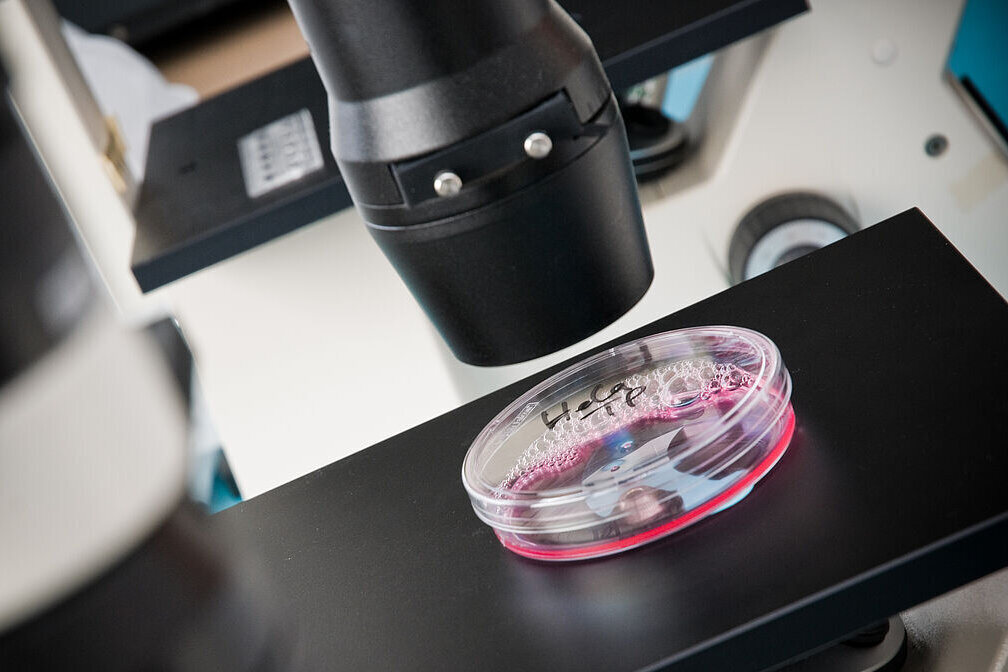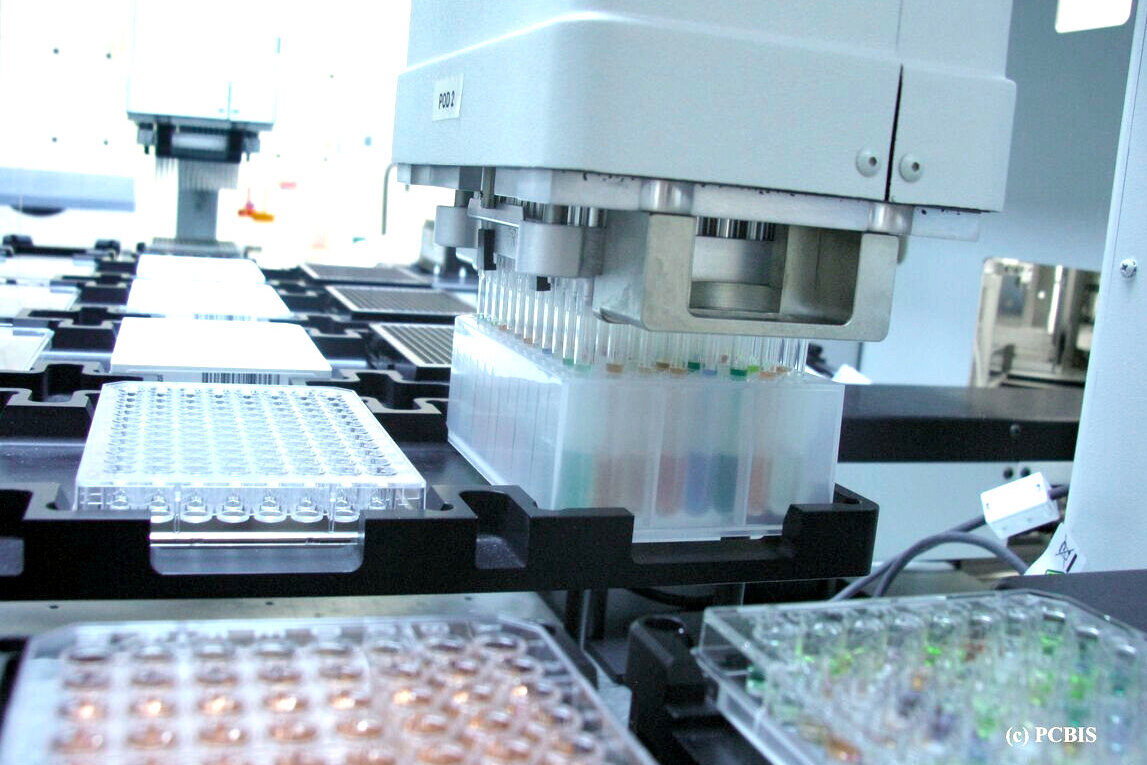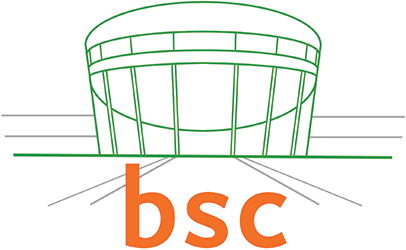The research unit BSC - Biotechnolgy and Cell Signaling has several technical platforms available for the research teams, as well as privileged access to technology platforms on the campus and a partnership with the PCBIS - UMS 3286 screening platform dedicated to drug discovery.
Summary
Photonic microscopy

This platform provides researchers in the unit with access to equipement for performing cellular imaging, including upright and inverted fluorescence microscopes for the detection of the majority of chromophores in visible wavelengths on living or fixed biological objects:
A Leica DMRA2 motorized upright microscope equipped with a Hamamatsu ORCA-ER cooled camera, with OpenLab 5 acquisition software (Improvision) and 3D deconvolution on images acquired in z with Volocity software (Improvision).
An Olympus IX83 TimeLapse automated inverted microscope with a PeCon incubation chamber with regulated CO2, temperature and humidity for long-term 2D/3D multi-acquisitions in fluorescence, phase contrast, equipped with a Hamamatsu Orca Fusion CMOS camera.
A Leica DM5500B motorized upright microscope equipped with a Leica CTR 6000 cooled camera.
A Nikon Eclipse TE2000U inverted microscope equipped for fluorescence and with a Leica DFC 425C cooled color camera.
A routine Leica inverted microscope, equipped for fluorescence and with a color camera.
Manager : Jean-Christophe AME
Cell culture

The institute has a large cell culture platform consisting of seven culture rooms accessible to research teams. These rooms are equipped with CO2 incubators, inverted microscopes, an inverted epifluorescence microscope, an automatic cell counter, a vertical laminar air flow hood and 9 microbiological safety stations (type II).
Manager : Valérie UTARD
Flow cytometry
The institute provides access to a flow cytometry platform for cellular analyses. This platform includes a BD Accuri C6 PLUS cell analyzer that allows high-speed cell analysis (10,000 events/second) by integrating up to 4 fluorescence measurements, with the possibility of working robotically in tubes or microplates.
Manager : Ambre BENDER
Quantitative PCR
The institute has a qPCR (quantitative PCR) platform for performing quantitative measurements of gene expression, epigenetic profiles or genetic variations. The platform provides access to several latest generation qPCR instruments (CFX Real-Time PCR systems, Bio-Rad) available to all teams.
Manager : Judith VALLET
Animal facility
The teams have access to a conventional animal facility (level A1) dedicated to breeding of mutant and transgenic mouse lines. The animal facility has a capacity of 1200 mice housed in ventilated cabinets under strictly controlled conditions, and is equipped to perform phenotypic and behavioral studies.
Partnership with the platform PCBIS - UAR 3286

The BSC laboratory is a partner of the Platform of Integrative Chemical Biology of Strasbourg (PCBIS | UAR 3286), hosted in the same building at the ESBS. The PCBIS platform offers a chain of resources and skills to implement high-throughput screens of bioactive molecules and accelerate the discovery of new drugs. Certified ISO 9001 and NF X50-900, it is the first public drug discovery platform in Europe.
The research teams have privileged access to the resources and various services offered by the PCBIS platform:
Development of custom screenings. This service provides validation and miniaturization of biological tests, as well as the production of molecular and cellular targets for screening (from cloning to stable or transient cell lines).
Chemical libraries. This service collects and packages libraries of molecules for high-throughput screenings and offers structure-activity studies. The platform has access to the Chimiothèque Nationale (more than 50,000 molecules) and the Prestwick Chemical bank (1280 drugs).
High-throughput screenings. Theplatform has robotic equipment to perform high-throughput screening of molecules on biological models, analyze the results and identify new targets.
Microfluidics. The microfluidic service aims at miniaturizing screening tests in microfluidic chips in order to reduce the quantity of reagents and cells used, increase the speed of analysis (ultra-high throughput screening) and promote the development of microfluidic approaches such as organs-on-a-chip.
Preclinical ADME-Tox tests. The ADME-Tox department evaluates chemical properties and ADME-Toxicity to optimize active molecules in the preclinical phase: physicochemical properties (solubility, stability, pKa, etc.), absorption, distribution, metabolism, elimination (ADME) properties, cellular tests (permeability, toxicity, etc.), in vivo analyses.
Production and purification of recombinant proteins by the IMPReSs (Integral Membrane Proteins Research and Services) service. The platform offers services dedicated to the production of membrane proteins such as GPCRs, transporters, ion channels, glycoproteins, or other cytosoluble proteins (oncoproteins, antibody fragments, etc.). It provides a range of optimized methods and tools ranging from cloning the gene of interest to the production, purification and analysis of proteins.
Manager : Pascal VILLA
More information on the PCBIS website.
Other technology platforms on the campus
- GenomEast platform (high throughput sequencing, microarrays, single cells)
- Cell sorting platform (flow cytometry)
- Proteomics (Mass spectrometry)
- Structural biology (cryo-EM, X-ray crystallography, NMR, super-resolution fluorescence microscopy...)
- Imaging centre (photonic and electronic microscopy)
- Antibody production
- Creation and phenotyping of genetic models (Mouse Clinical Institute)

